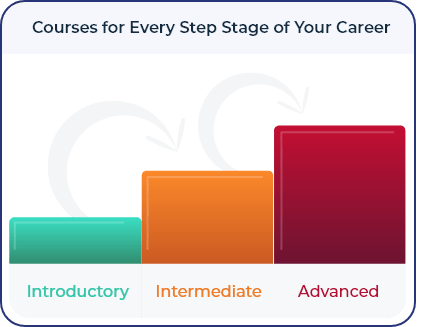Okay, so you have decided that you are going to get this Project Management Professional (PMP)® certification. How hard can it be? Surely all that is involved is studying the Guide to the Project Management Body of Knowledge (PMBOK® Guide) and applying for the exam. Why do you need to take a PMI® Authorized PMP® preparation course?
On this page:
- Benefits of Studying the PMBOK® Guide and Real-world Application
- Tailoring Knowledge and Terminology for Individual Companies
- Overcoming Obstacles and Strategies for PMP® Exam Success
- Conclusion
Benefits of Studying the PMBOK® Guide and Real-world Application
You might start thinking differently as soon as you tackle the application process. You cannot sit the PMP® exam unless you are an experienced project manager. Therefore, you have to ensure that you have the requisite number of hours clocked up – 4,500 hours if you have a primary degree and 7,500 hours if you do not. However, you are not asked to break that down in terms of projects, but in terms of process groups. So you need to have studied the PMBOK® Guide before you make the application. Taking a PMI® Authorized PMP® preparation course will offer help with the process. For instance, did you know that you get a discount on the exam fee if you are a member of the Project Management Institute (PMI)®? Did you also know that the discount is the same as the annual membership fee? So it makes sense to become a member before applying.
Tailoring Knowledge and Terminology for Individual Companies
Well, that might be useful, but surely studying the PMBOK® Guide is not rocket science? You should be able to do that on your own? This is true, but the PMP® exam is trying to probe your practical experience, so the questions seek to apply PMBOK® Guide knowledge into real-world scenarios. You have to get used to the style of questions and recognize what knowledge needs to be applied to what situation. Also, the PMBOK® Guide contains a great deal of information. PMI Registered Education Providers, like Velopi, have many years’ experience putting people through the PMP® exam process and have developed a good feel for the type of questions the PMP® exam contains.
Overcoming Obstacles and Strategies for PMP® Exam Success
It should also be noted that there are a series of key topics in the PMBOK® Guide that are examined in depth. Velopi will highlight these topics in its project management training courses and guide your study into those areas. Undirected study can involve a great deal of wasted effort – it is a bit like Pareto analysis, 20% of the material will support 80% of the questions.
But you are an experienced project manager. What have you to fear from scenario-based PMP® exam questions? Why bother with the PMBOK® Guide at all? Surely your experience is enough to cope with any question. As part of its project management training offerings, Velopi provides tailored project management courses for individual companies. The majority of the tailoring involves adapting to the company’s terminology. For instance, one company we dealt with recently called the Project Charter the Project Proposal. Is your company like this? Do you use the same terminology for your artefacts? Is your project management process the same as that recommended by the PMI?
But there are books out there explaining how to pass the PMP® exam. They have sample exam questions and they highlight the important topics. You can always get one of these and have all the benefits of a class, while studying at home. However, now that you are at project manager level, you are likely to have got married and acquired children, a dog and a lawnmower along the way. After a hard day managing projects, will you be up for some intensive PMP® exam study? Or will you find yourself carrying out domestic chores or making excuses not to pick up your PMP® exam guide?
The key advantage of taking a PMI® Authorized PMP® preparation course is that you are actually making an investment in the process. Having sat through four intensive days, you will find a deeper resolve to obtain the PMP® certification. This is true whether you pay for the course yourself or get your company to pay. You will also have the support of your classmates – when you see them passing the PMP® exam, it provides that bit of peer pressure to succeed yourself.
One of the big obstacles to obtaining PMP® certification is the PMP® exam itself. I, for one, had never endured a four-hour exam before and it takes a bit of strategy to get through. Velopi’s solution includes unlimited access to its Learning Management System. This includes 200-question, simulated PMP® exams. Try a few of these and learn how long it will take you to do the actual PMP® exam. Understand how your concentration levels ebb and flow; learn when you need to take breaks. Being prepared for the ordeal will make things much easier on the day of the PMP® exam.
Conclusion
Finally, if you are still convinced that you should go it alone, then revisit the PMP® exam application. You will need a minimum of 35 hours formal project management training. If you have not had such training, then Velopi’s five-day PMI® Authorized PMP® preparation course is all you need. Because of the Blended Learning Solution, which provides simulator access and one-on-one support up to the day of the PMP® exam, attending this course will be enough to meet the PMI’s formal training requirements.
Velopi runs its PMP® exam preparation classes online in our virtual classroom, so please contact us for details of the next PMP® course dates. You will not regret it.

















